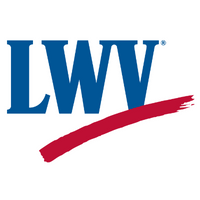Municipal Government
Position in Brief
Support measures that enable local governments to operate more effectively.
Background
The League’s interest in the role of the state in local government began decades ago as members studied municipal problems in their communities. Member consensus in 1969 approved optional forms of government for all communities, and the position was expanded in 1971.
The position is primarily for use by local Leagues in monitoring and evaluating municipal government. Leagues may work for the establishment of government study commissions, and members may serve on commissions, testify, observe, consult and educate the public on local issues.
Since the League adopted this position the number of municipalities has not changed. Fragmented government is very costly for all levels of government. Taxpayers are being charged for services that are duplicative and inefficient. The state has taken steps to provide economic incentives to municipalities to share services. In 2008, the General Assembly passed and the Governor signed legislation to consolidate the collection of the Earned Income Tax by municipalities and school districts across the Commonwealth.
Act 62 of 1972, the Home Rule and Optional Forms law, implemented Article IX (Local Government) of the PA Constitution of 1968. It provides procedures by which a county, city, borough, or township may choose to change its government. Under this position, local Leagues have been in involved in public information and advocacy on local government proposals to adopt home rule, including support of proposals to create home rule study commissions. Local Leagues can support home rule if it meets with our Municipal Government position. In 2007, LWVPA offered these guidelines to a local League considering a local government change to home rule:
Are the terms of the home rule publicly announced and have hearings been held?
Will minority representation be addressed?
Will ethics be addressed in the form of government?
How will the public interest be managed?
Will major parties be fairly represented?
Will the home rule charter improve the efficiency of local government in regard to tax equity, government operations, and election of government offices?
Even when local governments have home rule, there have been instances where the General Assembly and the PA Supreme Court have nullified ordinances passed by home rule entities. Specifically, Philadelphia was excluded from provisions included in the law legalizing casino gambling which gave every other municipality the right to decide if and where casinos could be located. Also, the Supreme Court has ruled against the right of Philadelphia to adopt gun control laws. Philadelphia has, however, adopted its own rules governing campaign finance. Another issue that Leagues may want to consider in structural changes in local government is representation on the legislative body by district rather than at-large. Representation by district raises the whole issue of decennial redistricting and possible gerrymandering.
Position in Detail
LWVPA believes:
Further fragmentation of local governments in Pennsylvania should be discouraged.
Criteria for assigning, limiting, or sharing governmental functions and powers should be:
Geographic area and characteristics.
Population size and/or density.
Economy and efficiency of performance.
Financial resources.
The need for a regional approach.
Responsiveness to citizens.
Community identity and current performance should be considered. Criteria should be used selectively in evaluating functions and powers.
Under a county or area home rule charter, a local municipality may be excluded only if it meets or exceeds standards of performance set by charter government.

